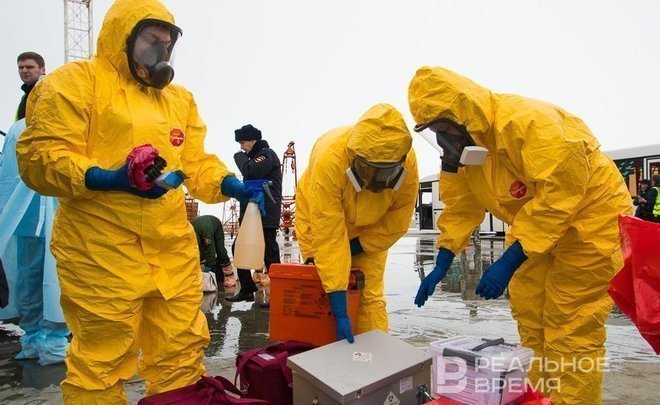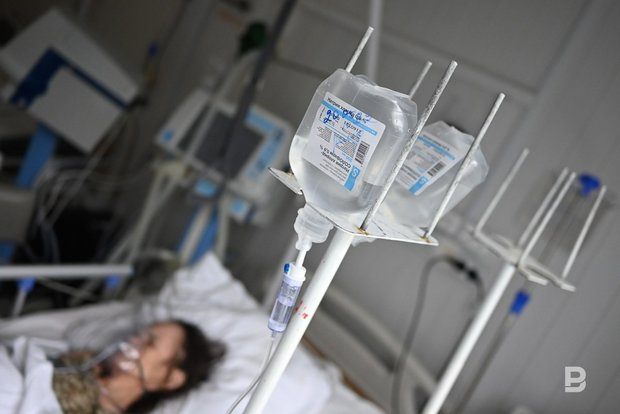‘Meat was taken for sale on the M7 highway after livestock slaughter’: anthrax can go outside Chuvashia

On 15 March morning, Governor of Tatarstan’s neighbour Chuvashia Oleg Nikolayev said that two citizens were infected with anthrax on the territory of the region. Nowadays the highly dangerous, as a rule, animals are vulnerable to is a rare occurrence, but isolated cases are anyway registered in Russia approximately once a year. To reduce the threat of its spread, tens of measures are taken across the country, and this case wasn’t an exception. As former Vice Director of the State Veterinary Office of Tatarstan, Director of Republican Veterinary Laboratory Ayrat Garayev told Realnoe Vremya, the possible source of the disease could go outside the region due to which control at checkpoints has been tightened and a real investigation is taking place on highways.

Anthrax is an infectious disease of all types of farm and wild animals as well as humans caused by the Bacillus anthracis bacterium. It is characterised for intoxication, development of serohemorrhagic inflammation of the skin, lymph nodes and internal organs. It can occur in the skin or in septic form (intestinal and lung forms). Skin anthrax that is a blister lesion of the skin that develops black eschar is the most widely spread form of the disease.
“Tatarstan is ready for every eventuality”
Director of Republican Veterinary Laboratory Ayrat Garayev said that though the situation didn’t pose a serious threat, all necessary measures had already been taken, the possible source of infection could anyway cross the borders of the republic.

According to Garayev, if needed Tatarstan is ready to resist anthrax and all necessary services are ready for it.
“The situation is dangerous if all the products aren’t found: the meat, the fur and other waste. We hope only unvaccinated animals were infected and it is not a biological threat or a deliberate campaign. The disease spreads through contact. Tatarstan is ready for every eventuality. Vulnerable animals are vaccinated here, even the cattle. We have dairy and beef cattle. Moreover, they are vaccinated twice a year, though one is enough according to the instructions. People who deal with the products, particularly my laboratory’s workers, were all vaccinated. The republic really has a lot of anthrax burial sites, but they are all fenced. If there aren’t land works, there is no source of proliferation,” the expert explained.

As for the possible import of infected products, here Garayev noted that the republic’s borders are strictly controlled, which implies tightened preventive measures.
“We have special checkpoints even to bring products. For instance, the Malinovka checkpoint on the road from Chuvashia. Animal husbandry products are inspected by police workers and veterinarians together with Russia’s agriculture watchdog, inspectors of the Tatarstan State Veterinarian Service. They are on duty 24/7 and take all preventive measures. Now all the products delivered on the M7 highway are inspected by these checkpoints. Products suspected to have anthrax are removed first even in markets. They are isolated and analysed,” he stressed.
